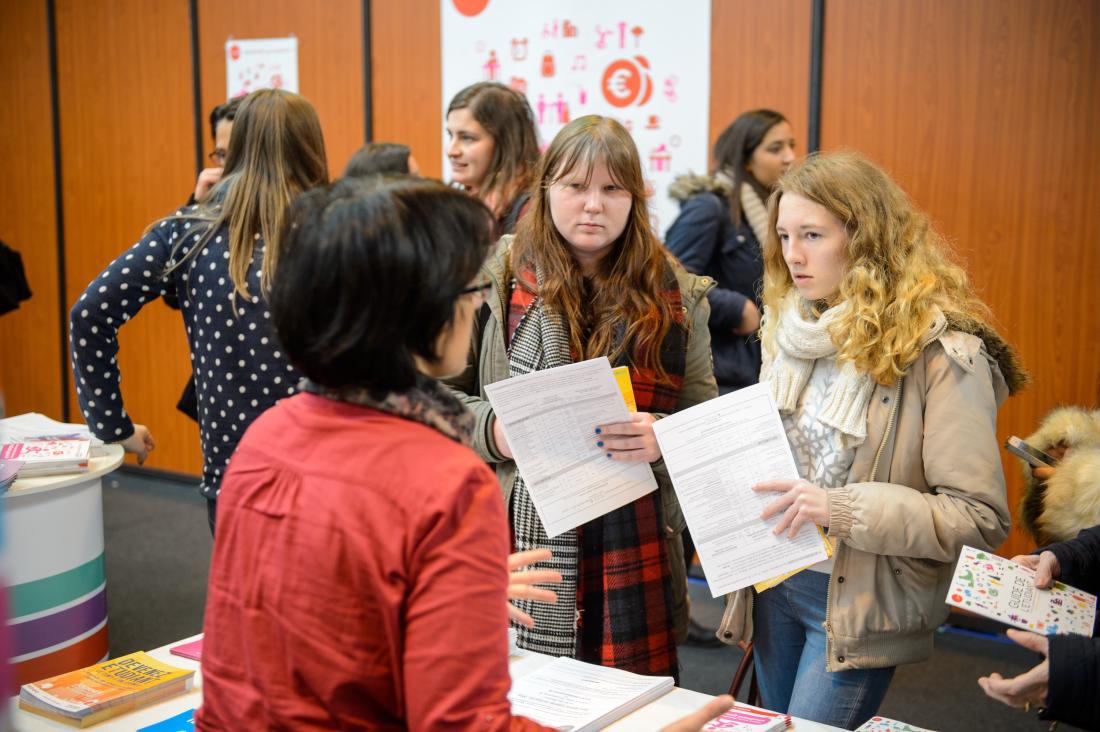Collective Counseling for Disadvantaged Jobseekers in France
- Job seekers
- Youth
- Employment
- Aspirations
- Take-up of program/social service/healthy behavior
- Coaching and mentoring
- Information
- Job counseling
Youth living in poor urban areas face a number of psychological and social barriers to finding work. In France, over 40 percent of these youth are unemployed, twice as much the national youth unemployment rate. Researchers partnered with the French Public Employment Services to test the effectiveness of a collective job-search program targeting disadvantaged youth. Collective counseling was more effective in helping youth find a stable, full-time job than individual job counseling. The program performed better for jobseekers with higher employment prospects prior to the program, and in groups where participants had similar employment prospects.
Problema de política pública
Youth living in poor urban areas face a number of psychological and social barriers to finding work. Living in areas with high levels of unemployment can reduce job-search efforts as unemployment is perceived as the norm rather than the exception. In addition, these youth may lack the social networks that can provide them with information about job vacancies, connect them to potential employers and help them gain a realistic understanding of employers’ expectations.
Many job-search assistance programs use one-on-one meetings with caseworkers, but group job-search programs could increase access to information and improve job seekers’ motivation, as they may encourage the sharing of information and experiences, provide a networking venue, and increase participants’ job-search efforts through peer pressure and support. Is collective counseling an effective strategy to help disadvantaged youth find work?
Contexto de la evaluación
In France, over 40 percent of youth living in poor urban areas are unemployed, twice as much the national youth unemployment rate. To manage an increasing number of subscribers, Pôle Emploi, the French Public Employment Service, has focused its efforts on the most vulnerable populations, and has developed a collective counseling program targeted at disadvantaged youths. In 2012, Pôle Emploi decided to scale up this program to 30 employment agencies in 15 regions and rigorously measure its impact on job-seekers’ understanding of the job market and employment status.

Detalles de la intervención
Researchers partnered with Pôle Emploi to test the effectiveness of a collective job-search counseling program implemented in 30 employment agencies. The program targeted youth under 30 living in poor urban areas. To be eligible to participate, youth had to have defined job-search goals, be equipped with the required training and skills, be available to start the program immediately, and express their motivation to participate in an intensive counseling program.
Drawing from a sample of 3,606 job seekers, researchers created pairs of similar job seekers based on a set of observable characteristics. Each member of a pair was then randomly assigned to the intervention group or to the comparison group.
Participants in the intervention group joined a job-search “club”, operated by the local public employment agency. Each club included 10 to14 participants and one counselor, who met two to four times a week for three months. Counselors helped job seekers understand employers’ expectations, encouraged them to apply for jobs and helped them prepare job interviews. Group members encouraged each other to look for work, provided advice, and shared information about job vacancies.
Job seekers in the comparison group received the standard counseling program provided by a private operator: one-on-one meetings with a counselor, once a week over three months.
Researchers conducted two surveys, two and six months after randomization, to understand job seekers’ expectations and job search efforts. In addition, they collected administrative data on job seekers employment history and employment outcomes.
Resultados y lecciones de la política pública
Collective counseling was more effective in helping youth find a stable, full-time job than individual job counseling. Collective counseling performed better for jobseekers with higher employment prospects prior to the intervention, and in groups where participants had similar employment prospects.
Program take-up was relatively high. Ninety percent of youth assigned to the intervention group effectively entered a job search club, while 80 percent of youth assigned to the comparison group entered the individual job counseling program. Jobseekers in both groups were on average more educated, and had fewer and shorter previous unemployment spells than youth who did not enroll.
Counselors in the collective counseling program were more effective in helping jobseekers identify offers and apply for jobs. Two months after random assignment, intervention group youth had sent twice as many job applications with the counselor’s support than comparison youth and received twice as many interview requests through their counselor. Intervention group youth were more optimistic about finding work and had higher expectations of finding longer-term contracts than comparison youth.
In the short run, collective counseling was more effective in helping youth find employment. Thirty-three percent of jobseekers assigned to the collective counseling program had a job two months after randomization, compared to 26 percent in the comparison group. This effect was driven by a higher number of intervention youth entering subsidized jobs. Furthermore, youth in the intervention group were more likely to find a full-time job and a job lasting at least six months than youth in the comparison group.
These effects persisted in the longer run, but were less strong. Six months following random assignment, 56 percent of youth assigned to the intervention group had a job, compared to 52 percent of comparison youth. The impact was stronger for participants who had higher employment prospects prior to the program.
Collective counseling was more effective when group participants had similar employment prospects. For male jobseekers, the program was more effective when group members faced similar employment prospects, particularly when most participants in the group had low chances of finding employment prior to the program.

